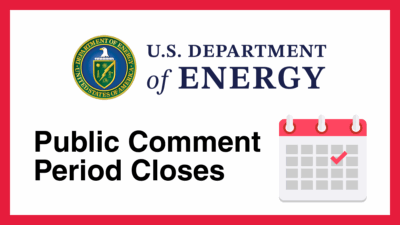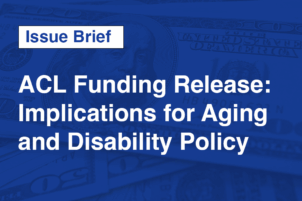 The U.S. Department of Energy (DOE) recently proposed rolling back two long-standing regulations—10 CFR 1040.73 and 10 CFR 1040.72(c) & (d)—that help enforce Section 504 of the Rehabilitation Act. These regulations require that buildings constructed or altered with federal funding be accessible to people with disabilities. They also require existing buildings to remove access barriers over time in collaboration with the disability community.
The U.S. Department of Energy (DOE) recently proposed rolling back two long-standing regulations—10 CFR 1040.73 and 10 CFR 1040.72(c) & (d)—that help enforce Section 504 of the Rehabilitation Act. These regulations require that buildings constructed or altered with federal funding be accessible to people with disabilities. They also require existing buildings to remove access barriers over time in collaboration with the disability community.
If the proposed changes move forward, newly constructed or renovated federally funded buildings may no longer be required to meet specific accessibility standards such as the Uniform Federal Accessibility Standards (UFAS). This could mean that features like ramps, elevators, accessible restrooms, and other elements that support equitable access would not consistently be included in federally funded projects.
The DOE published two Direct Final Rules (DFRs) on May 16, 2025. In the rule rescinding 10 CFR 1040.73, which addresses accessibility in new construction, the agency noted that Section 504 already prohibits discrimination based on disability in federally funded programs and activities and expressed the view that additional construction-specific requirements may be redundant.
The DOE stated, “Given the general prohibition on discriminatory activities and related penalties … DOE finds these additional provisions unnecessary and unduly burdensome.”
In a separate DFR addressing 10 CFR 1040.72(c) & (d), which outlined timelines for updating existing facilities, the DOE described the regulations as outdated. These provisions established specific timeframes: updating existing buildings within 60 days and requiring a transition plan within six months. The DOE wrote, “In light of the fact that over two decades have passed … DOE has determined that 10 CFR 1040.72(c) and (d) are obsolete and outdated.”
The public comment period on both rules closed on June 15, 2025. According to Regulations.gov, 20,711 public comments were submitted in response to the rule on new construction requirements, and 7,594 comments were submitted regarding the general provisions rule.
Both rules are scheduled to take effect on July 15, 2025, unless the DOE determines that any of the comments it has received are “significant adverse comments.” These are described by the DOE as comments that raise substantial concerns about the rule and require a formal response. Were such comments received, the DOE may withdraw the rule or issue a revised final rule that addresses the concerns. Any decision will be published in the Federal Register before the effective date.
Now that the comment period has closed, stakeholders and advocates await the DOE’s next steps and its final determination on whether the proposed rollbacks will be implemented.







